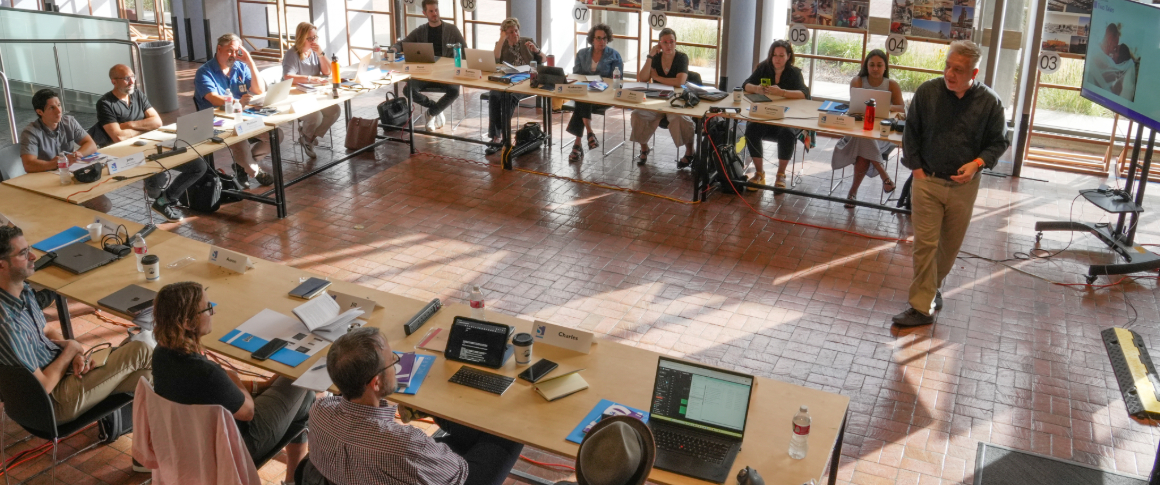This year’s NCARB Scholars in Professional Practice program brought together 16 faculty and professional practice educators from architecture schools nationwide to explore innovative approaches to preparing the next generation of architects.
Attendees discussed current trends impacting teaching techniques through presentations from experts in both architectural practice and teaching, interactive learning sessions, and peer-to-peer collaboration. Scholars explored methods outside their typical approach to ensure students are equipped with professional practice -related knowledge and skills needed for success at licensed practice.
From unpacking the power of “why” to rethinking traditional teaching models, the two-day program emphasized using authenticity, vulnerability, empathy, and storytelling to transform students’ learning experiences within professional practice education.
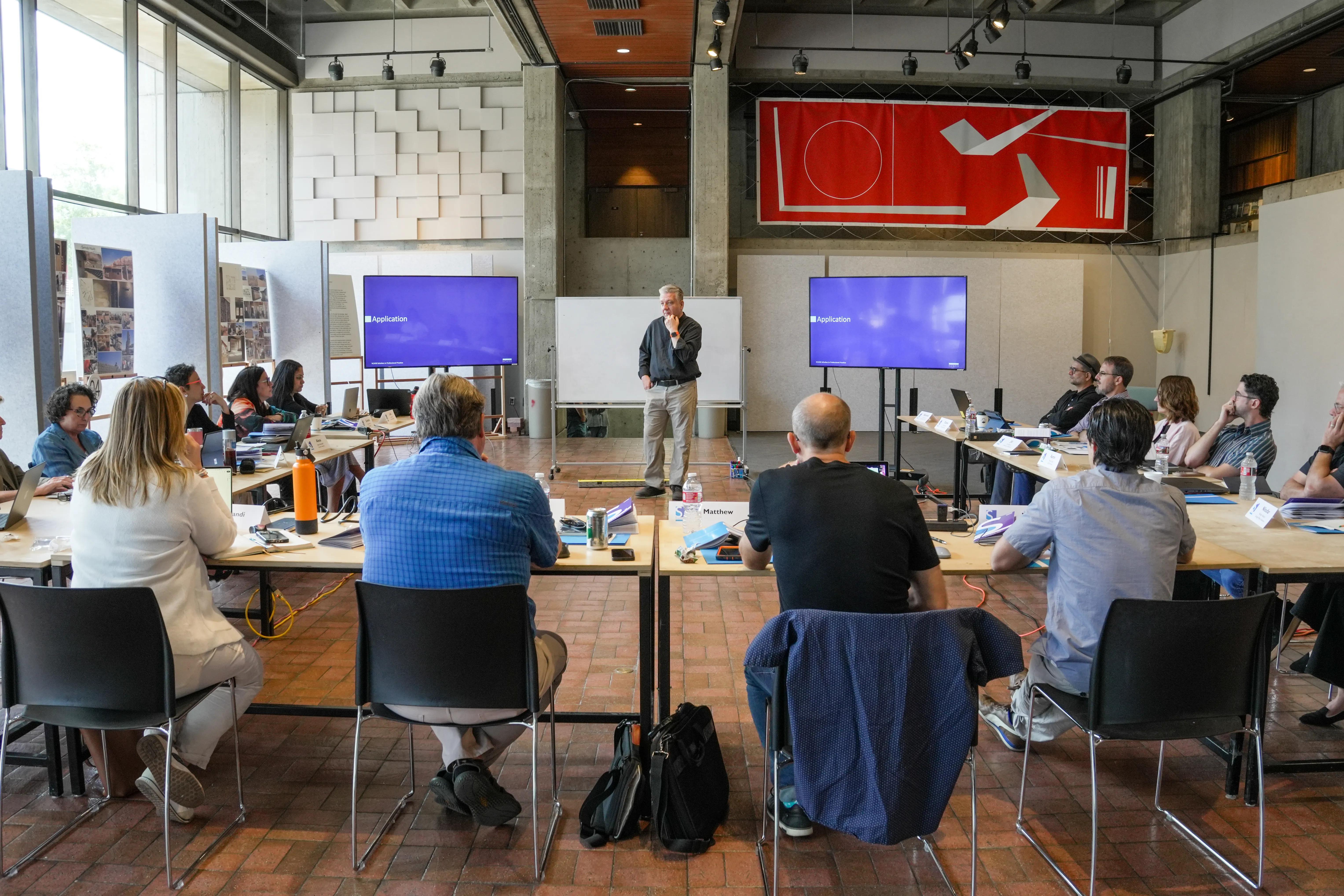
“Change starts when students believe they have the creativity and ability to see a different future,” says facilitator Scott Barton, AIA, IIDA, ISTE, NCARB, M.A. Ed., during Friday’s session, where he shared several methods to enhance learning:
- Learn what motivates your students. Foster students’ intrinsic motivation rather than extrinsic and integrate shared values and beliefs into teaching.
- Use andragogy (rather than pedagogy). Barton challenges educators to recognize students as early professionals who bring their own knowledge and experiences to the learning environment.
- Make the world the classroom. Expanding the learning experience and implementing new teaching methods, from role-playing client meetings to connecting specification requirements to jobsite observations, encourages students to see learning opportunities everywhere—not just in the classroom.
- Utilize recent technological advances and current trends. Explore opportunities to integrate and empower students’ learning experience with emerging technologies, like AI, while upholding the ethical standards of the profession.
- Embrace storytelling. Integrate storytelling into the learning experience to convey complex ideas through memorable, relatable, and digestible concepts.
Attendees were encouraged to champion diverse voices and experiences and frame technical skills within broader human contexts, allowing students to think and engage with the profession critically.
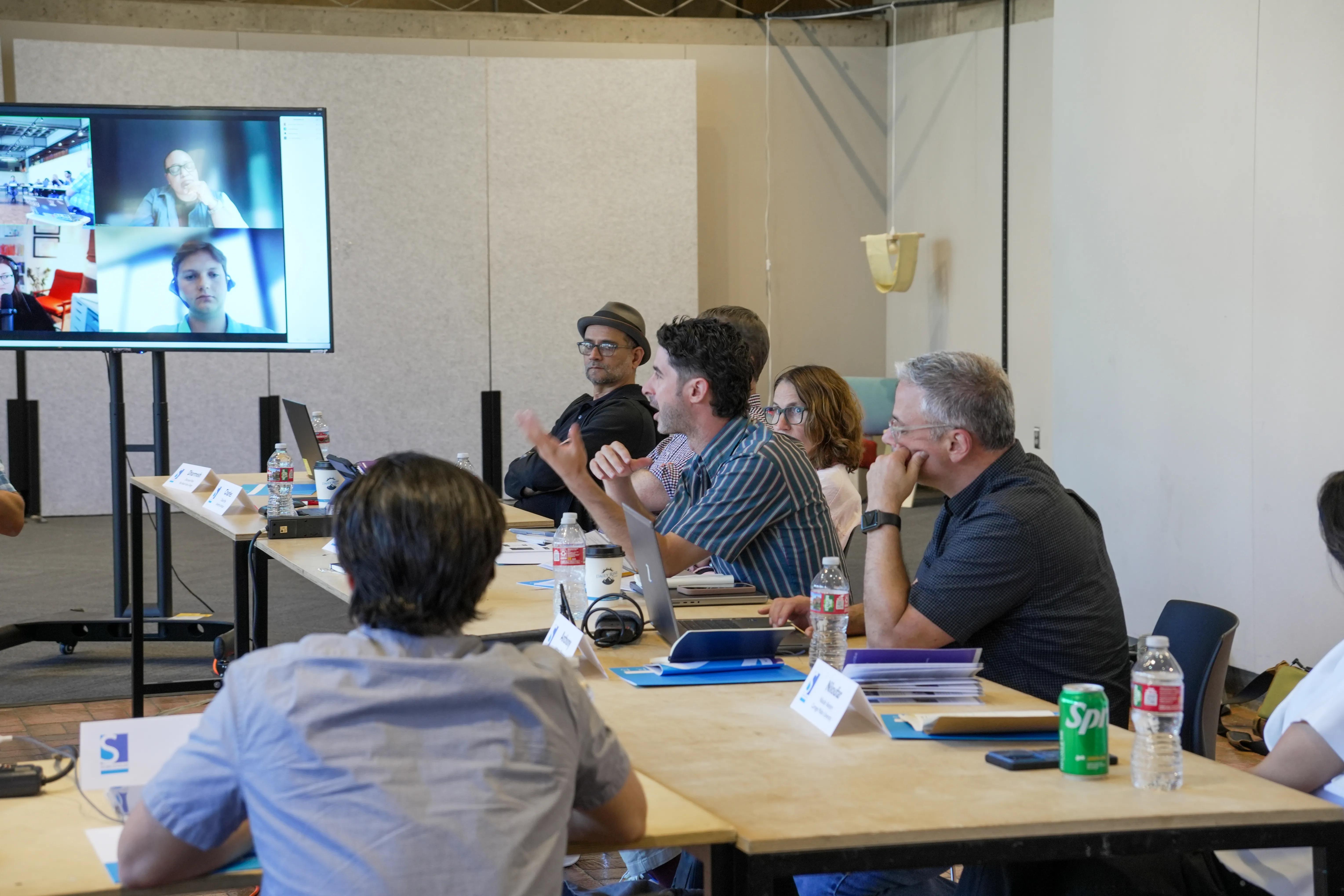
Panelists Lisa Cholmondeley, FAIA, NOMA; Je’Nen Chastain, MBA, Assoc. AIA; and recruiter Jack Blessington joined the cohort for a session exploring various career paths in architecture. Scholars gained a deeper understanding of the opportunities within the profession and how to successfully prepare students to explore the path that best fits their goals or experiences.
Following the panel, the group delved into the complex topic of professional ethics, a subject of great interest to the Scholars. Recognizing that ethics can be a challenging subject to teach, the session was designed to be highly interactive. Through a jigsaw activity and discussions of real-world scenarios, the Scholars explored foundational resources like the AIA Code of Ethics and NCARB’s Model Rules of Conduct. This approach provided educators with a practical framework to use in their classrooms, helping them prepare students to analyze and navigate the ethical dilemmas they may encounter in the profession.
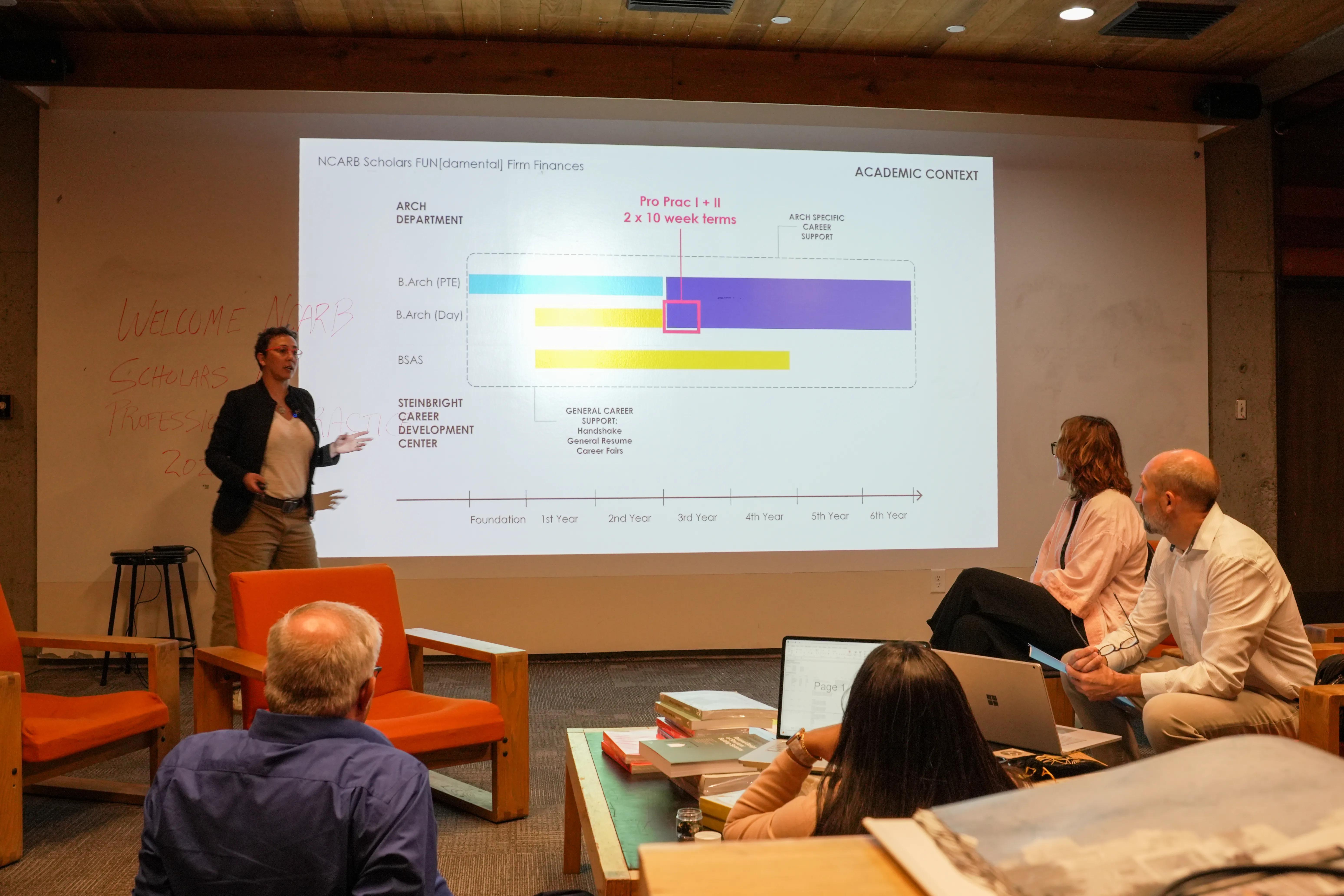
Scholars presented brief lessons to their peers, simulating their professional practice course in a small group setting. They received constructive feedback and helpful tips for applying new and best practices learned throughout the two-day event.
Attendees were also educated on NCARB’s current efforts to support professional practice education, assess what architects “actually do,” and ensure fairness in licensure. They also learned more about NCARB’s programs and what to expect in the future as NCARB aligns its programs with the Competency Standard for Architects.
NCARB’s goal is to ensure that educators teaching professional practice have access to the resources they need to help students succeed. Through the annual Scholars program, NCARB continues to foster a community of diverse professional practice educators who are propelling the future of architectural education forward.
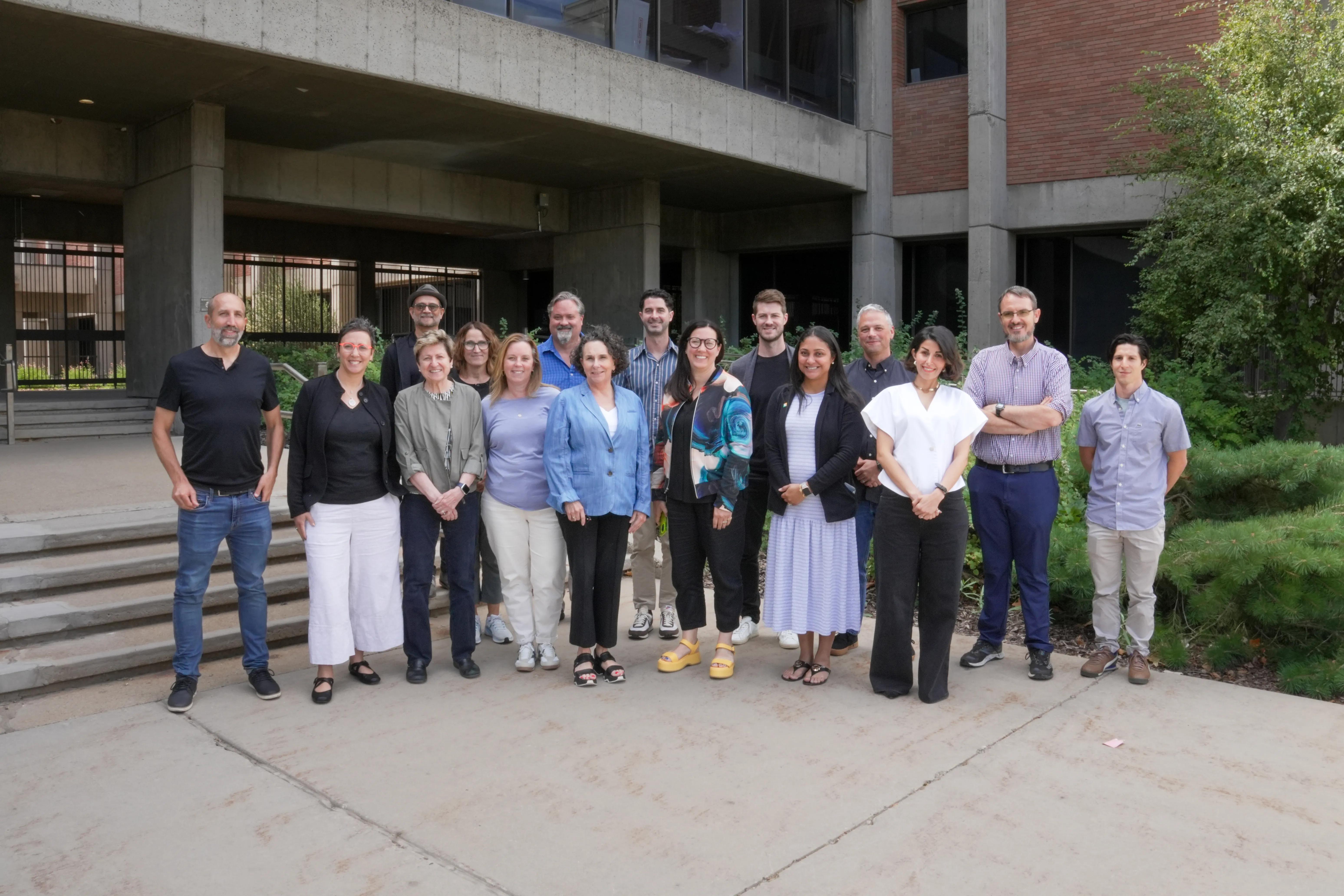
Congratulations to the 2025 cohort of NCARB Scholars in Professional Practice!
- Niloufar Alenjery, RA, NCARB | Special Faculty Member, Carnegie Mellon University
- Leila Ammar | Associate Professor of Practice, Iowa State University
- Garet Ammerman, AIA, NCARB | Associate Professor, University of Texas San Antonio
- Aaron Cayer, Ph.D. | Assistant Profession of Architecture, California State Polytechnic University, Pomona
- John A. Doria, AIA, NCARB, CCM, LEED Green Associate, CM-Lean | Adjunct Professor, New York Institute of Technology
- Katherine Kennon, AIA | Professor of Practice, Belmont University
- Nathan Knutson, FAIA, NCARB, LEED AP | Professor in Practice, University of Minnesota
- Carisima Koenig, AIA | Adjunct Associate Professor, Pratt Institute
- Jill Leckner, RA, LEED AP | Professor, University of Kentucky College of Design
- Dharmesh Patel | Department Chair, Professor of Architecture, Palm Beach State College
- Anthony J. Piermarini, AIA, CPHD | Associate Professor, Wentworth Institute of Technology
- Charles Pifer | Adjunct Lecturer, University of Arizona
- Alesa Rubendall, AIA, LEED BD+C | Assistant Teaching Professor, Associate Director of Career Services, Drexel University
- Barbara A. Sestak, FAIA | Professor, Portland State University
- Brandi R. Shepard, Assoc. AIA, CSI, CDT, LEED Green Associate | Associate Professor, Anne Arundel Community College
- Matther Snoap | Professor, School of the Art Institute of Chicago
